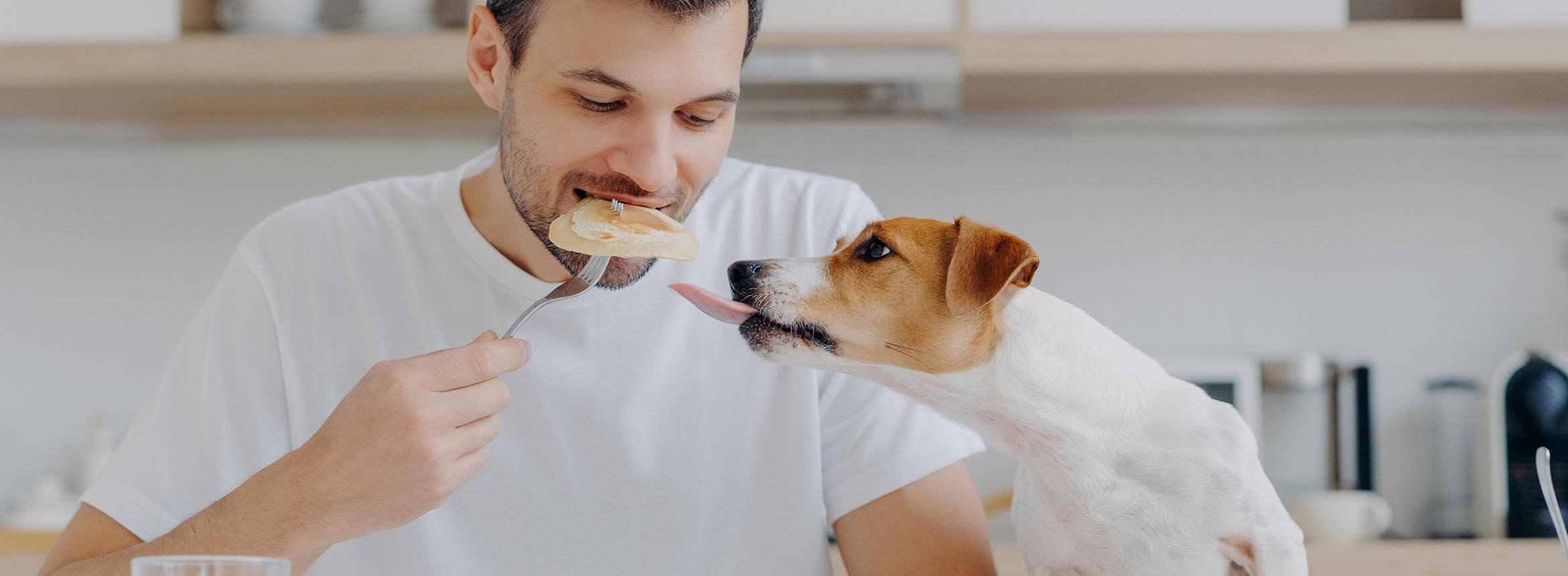When your pets look up at you with those begging eyes, it’s hard to resist giving them a tasty treat from your plate. But not all human food agrees with our furry friends; in fact, some can cause them to get seriously sick. Get the lowdown on what foods to avoid with this helpful list.
1. Chocolate
Chocolate is a big no-no for pets. It contains two ingredients — caffeine and theobromine — that are toxic to both dogs and cats. If your pet has raided your chocolate cache, the first step is to call your veterinarian. You can also call either the ASPCA’s 24-hour poison hotline: 888-426-4435 or the Pet Poison Hotline: 855-764-7661.
Be sure to call, even if you don’t think your pal ate a lot of chocolate. Symptoms of chocolate toxicity can take six to 12 hours to appear and include extreme thirst, diarrhea, vomiting, hyperactivity, pacing, panting, shaking, and seizures.
Don’t wait for signs of chocolate poisoning to show before calling your vet. Symptoms can last up to 72 hours, so it’s important your pal gets treated early. You’ll be asked your pet’s size plus what type and quantity of chocolate eaten (dark chocolate tends to be more toxic than milk or white chocolate).
2. Xylitol
Sugar-free candies and gums contain xylitol, an artificial sweetener that’s extremely toxic for dogs and cats, often dropping their blood sugar within minutes after eating. Pets can become lethargic, unable to walk, and might even have seizures. If your pal eats anything containing xylitol, make a quick call to your vet. If not treated as early as possible, liver damage or failure is possible.
Note: Some nut butters also contain xylitol, so be sure to check the label if your dog enjoys peanut butter as a treat.
3. Grapes and raisins
Peeled, dried, or whole, grapes and raisins are another dangerous food for pets. Though it’s not yet clear what is exactly in grapes that causes a toxic reaction, pets (especially dogs) can develop sudden kidney failure after eating them — a condition which can be fatal. Keep the fruit bowl safely out of your buddy’s reach.
4. Onions and garlic
Onions and garlic are staples of almost any (human) meal worth eating. However, they can seriously upset your pet’s stomach. Cats are also particularly susceptible to red blood cell damage and anemia if they ingest onions, garlic, or chives. Dogs are too, if they consume a large enough amount. To be safe, it’s best to keep your pal far away from these aromatics, whether they are raw, dried, or in powder form.
5. Human medicine
Keep all human medications away from your fur baby. Even common painkillers like acetaminophen and ibuprofen can have serious and dangerous consequences for pets if consumed.
6. Milk
Though the image of a cat lapping up a bowl of cream is a classic one, keep milk and cream off your pet’s menu. Pets don’t possess significant amounts of lactase (the enzyme that breaks down lactose in milk). As a result, milk can cause diarrhea or other digestive upset.
7. Alcohol
Pets should never consume alcoholic beverages or foods with alcohol in them. Vomiting, diarrhea, decrease in coordination, central nervous system depression, difficulty in breathing, tremors, abnormal blood acidity, coma, and even death can occur if your pet consumes alcohol.
Reminder: If you suspect your pal has eaten something he or she shouldn’t have, call your vet, the ASPCA’s 24-hour poison hotline (888-426-4435) or the Pet Poison Hotline (855-764-7661) immediately.

